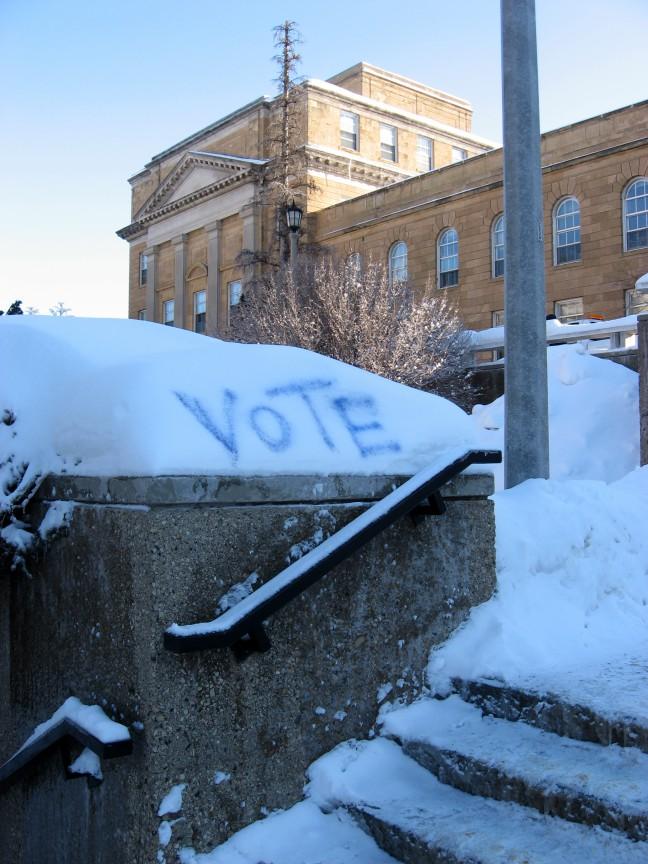For the first time in almost 30 years, the City of Madison will not hold a February primary election, according to a statement released by the city clerk’s office.
“The last time this happened was in 1986,” Thomas Lund, municipal clerk, said. “So it’s unusual.”
Lund said the city will not hold the election because there are no primary challenges for the races to appear on the ballots on April 1.
“Typically, there is a third person, and we would need a primary to narrow it down,” Lund said. “But in no races in the City of Madison are there three candidates, so we don’t need it.”
Some cities in Dane County have enough candidates competing for the same seat, so there will be scattered primaries throughout the county, he said.
Reid Magney, spokesperson for the Government Accountability Board, said another reason for the absence of a February primary this voting season is due to the lack of state Supreme Court candidates.
Magney said a Supreme Court primary is what often contributes to having a primary in February, as local offices often go unopposed.
Lund added there will also be changes to the city’s voting machines this spring. The machines will now have optical sensors to make counting votes more efficient, he said.
There will now be both a picture record of every ballot as well as the usual paper record, according to Lund. He said that the votes would still be cast on paper ballots, which many voters find important.
“We do have one person who for one of the races on every ballot writes in her name, and then asks us to go through the ballots and find it for her,” Lund said. “That is her way of checking to make sure that her ballot is counted, so some people have a real concern about that.”
He said a key difference is that the touchscreen on the machine notifies voters of any error in their ballot or a “hank you for voting” signal lets them know that their vote has been counted. In contrast, the previous machines would make a series of beeping noises if the ballot had any error, he said.
Another small modification is the machine’s ability to process regular printing paper, as opposed to the previous machines that required heavy-duty paper, Lund said. This allows clerks to respond rapidly when running low on ballots, he said.
“It’s a smaller, more portable and smarter machine,” Lund said.
Lund said voters can now come to the clerk’s office to familiarize themselves with the new voting machines. For the next couple weeks, anyone can come in and test out the new machines in a “mock election,” he said.







